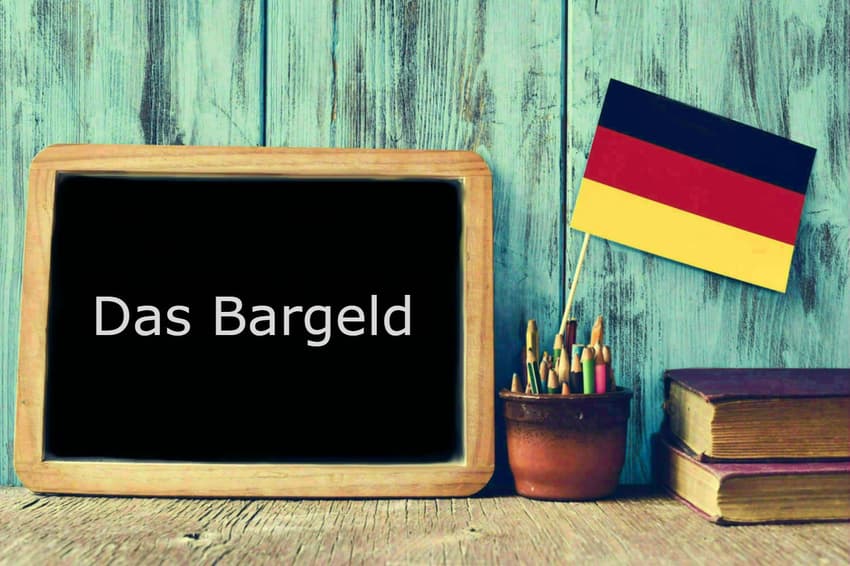German word of the day: Das Bargeld

Bargeld is a word which you'll hear a lot in Germany - and use much more than in many other European countries.
Bargeld is the German word for cash. It is made up of Geldscheinen (bank notes) and Münzen (coins) and is still the most popular method of payment in Germany.
Whereas other countries like Sweden are close to becoming cashless societies, Germans are sticking with the traditional forms of money.
SEE ALSO: How Germany has been minted as a coin carrying society
Bargeld is a compound noun constructed from Bar (cash) and Geld (money), so literally means “cash money”. Often, just the word bar is used.
The German idiom Bargeld lacht, (literally “Cash laughs”) equates to the English “Cash is king”.
Examples:
Normalerweise zahle ich bar aber heute zahle ich mit Karte.
Normally I pay in cash but today I’m paying by card.
Bargeld besteht in Banknoten und Münzen.
Hard money consist of bank notes and coins.
--
Do you have a favourite German word or phrase you'd like to see us cover? If so, please email our editor Rachel Stern with your suggestion.
Comments (1)
See Also
Bargeld is the German word for cash. It is made up of Geldscheinen (bank notes) and Münzen (coins) and is still the most popular method of payment in Germany.
Whereas other countries like Sweden are close to becoming cashless societies, Germans are sticking with the traditional forms of money.
SEE ALSO: How Germany has been minted as a coin carrying society
Bargeld is a compound noun constructed from Bar (cash) and Geld (money), so literally means “cash money”. Often, just the word bar is used.
The German idiom Bargeld lacht, (literally “Cash laughs”) equates to the English “Cash is king”.
Examples:
Normalerweise zahle ich bar aber heute zahle ich mit Karte.
Normally I pay in cash but today I’m paying by card.
Bargeld besteht in Banknoten und Münzen.
Hard money consist of bank notes and coins.
--
Do you have a favourite German word or phrase you'd like to see us cover? If so, please email our editor Rachel Stern with your suggestion.
Join the conversation in our comments section below. Share your own views and experience and if you have a question or suggestion for our journalists then email us at [email protected].
Please keep comments civil, constructive and on topic – and make sure to read our terms of use before getting involved.
Please log in here to leave a comment.